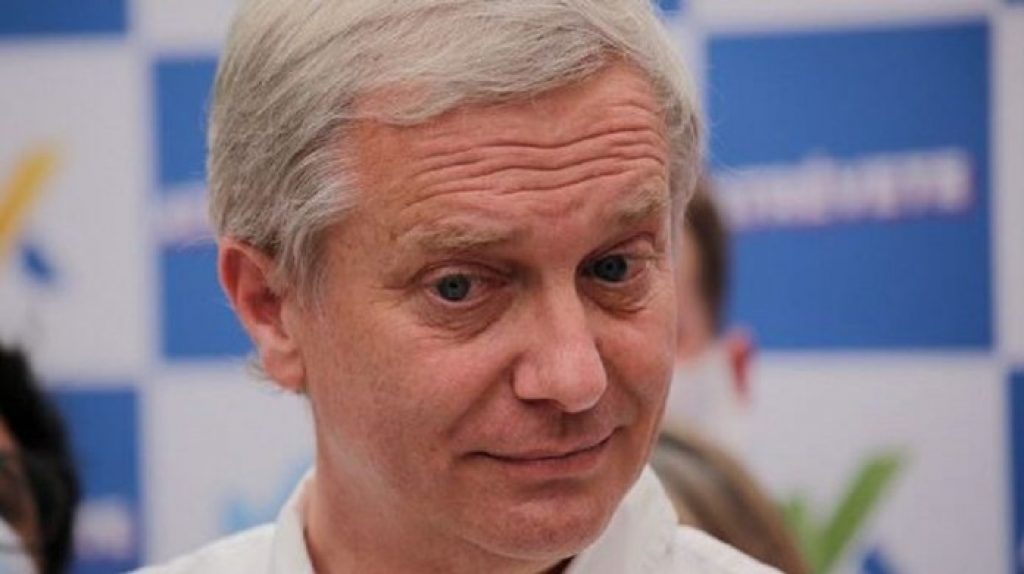“If Pinochet lived, he would vote for me. ” José Antonio Kast pointed out in an interview. Kast is the candidate who defends Pinochet, the dictator who, when asked about the bodies found piled up in graves, said “what a great economy!”
Kast is the most conventional, traditional, and chauvinistic examination of Chilean society. Communicationally effective, it is not surprising, because he clearly proposes his extreme ideas that are based on his personalism and leadership in his political establishment.
He plays an archetypal role, representing that which remains stable and absolute, in a Chile where it is changing and respect for diversity advances at a rapid pace, at the point of struggle.
By analyzing his program, Kast offers “a free Chile. ” It seems to be a hopeful phrase in the process of rebuilding the country, but it is not. Kast is the backward movement, where the majority is left out.
His program is a roadmap that must be looked at carefully, as it is abysmal and chilling. It draws a state that interferes with bodies, families and annuls the basic rights of citizens.
Abortion The woman who aborts will once again be considered a criminal by the State, as happened between 1989 and 2017. In a “Kastian” scenario, the mother is obliged to have the child, even if it has not been desired, it is the product of rape and even, when your own life is at risk. You will not have decision-making power over your body.
Marriage. The candidate appeals to the marriage between a man and a woman, before God, the rest does not exist. He voted, along with nine other deputies against the
Civil Union Agreement, because it ensures that “a child who grows up in a home parental home will do so with insecurity, anguish and will have poor school performance, since nature says that this, to project itself, must have both a paternal and maternal image.”
Kast believes in that unique form of the family: father, mother, and children. His program offers incentives and subsidies only to married couples.
Immigration. In the political strip on November 7, Kast appears in the north of Chile, recounting immigration and the “humanitarian catastrophe” in Venezuela.
dig a ditch to prevent Venezuelans from entering through unauthorized steps and seeking refuge. Those who enter Chile will be expelled. There is no proposal on international agreements to support and remedy a situation that occurs worldwide.
Also in a possible government, Non-Governmental Organizations and civil society entities that provide help and guidance to illegal immigrants will be identified, investigated, and sanctioned.
Human rights. Kast intends to close the National Institute of Human Rights, leave the UN Human Rights Council, and repeal the law on political exonerators. In 2017, he offered the criminals of Punta Petco an “immediate pardon”, and continues to maintain it.
He assures that there are prisoners for “legal fiction” and proposes “an end-to-end law, to close the issue and look forward.” Referring, incredibly, to those who are sentenced to more than 800 years in prison, for crimes against humanity, which occurred during the Pinochet dictatorship.
For personal freedoms, reading the program is disturbing. Kast wants international coordination to eradicate the left, and thus “identify, arrest and prosecute radicalized agitators.”
Kast also proposes a “renewed state of emergency”, which would allow the President of the Republic “to intercept, open or register documents and all kinds of communications and arrest people in their own homes or in places that are not prisons or are destined to the detention”.
Powers that today only exist in case of internal or external war, and are authorized by the National Congress.
According to his plan, Kast, as president, would need no war or authorization to order any citizen to be arrested and transferred to a secret place of detention.
José Antonio Kast’s program proposes that the State will dominate the freedom of individuals, deciding on their bodies, discriminating between first and second-class families, and with a free letter for abuse by state agents.
What freedom is he referring to, then? At first glance, to freedom with a single profile, where everything that has been advanced does not work, where the force, the political, economic, and communicational power of a powerful group continue to reign, where the voice of the people continues in shutting up. This is what his program states: “Freedom is the foundation of the liberal and libertarian right.”
